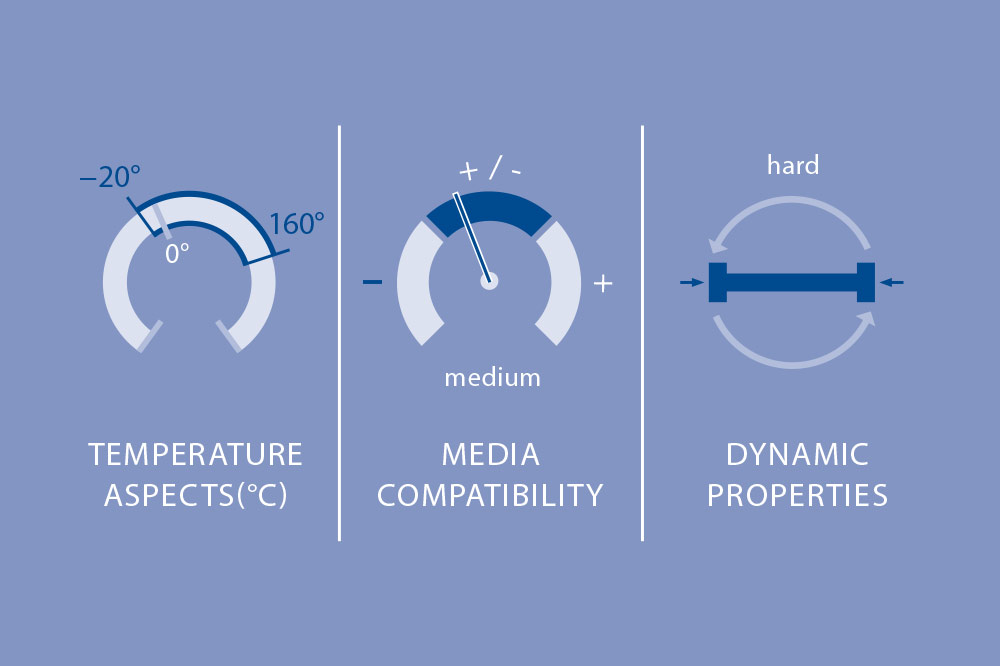Obtain news and background information about sealing technology, get in touch with innovative products – subscribe to the free e-mail newsletter.

ACM
ACM Material Properties - What is ACM

ACM elastomers are made of polar acrylic acids. As polar materials, they display good resistance to high-additive lubricating oils. Due to its saturated¹ main chain, the material exhibits good resistance to ozone, weather and heated air. Petroleum-based oils and fluids (for engines, transmissions and automatic transmissions) cannot harm them.
But the material offers only moderate strength and low elasticity while displaying limited cold behavior.
ACM is not stable in hot water, steam, fuels, polar solvents (e.g. acetone, MEK, aromatic hydrocarbons (benzene, xylene, tolulene), chlorinated hydrocarbons, and glycol-based brake fluids, acids, lyes and amines, along with hydraulic fluids (HFA, HFD, HFC, HFD).
In high volumes, ACM is an affordable alternative to HNBR and FKM with good high-temperature behavior up to 160 °C. It is above all employed in automotive transmissions – e.g. in Simmerrings, O-rings, housing covers and oil pan seals.
¹ If a polymer no longer has any reactive double bonds, it is described as saturated.

Join Us!
Experience Freudenberg Sealing Technologies, its products and service offerings in text and videos, network with colleagues and stakeholders, and make valuable business contacts.
Connect on LinkedIn!


